Coronavirus: Fake and misleading stories that went viral this week
- Published
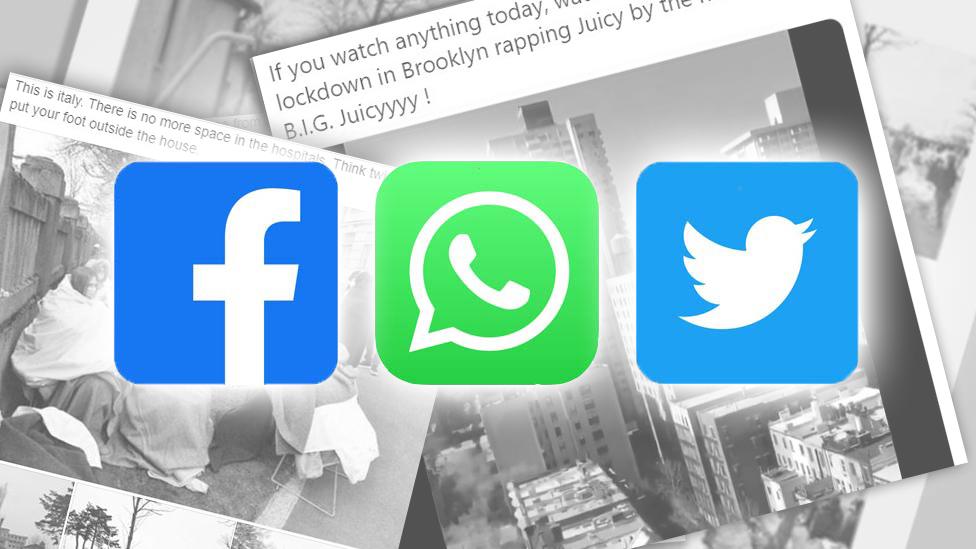
We've all been there. A coronavirus post that could be true and sounds about right, but how do we know it's accurate?
To help, the BBC's disinformation-monitoring team is fact-checking and verifying some of the most widely shared fake and misleading stories of the week.
Was Brooklyn rapping along to The Notorious B.I.G.?
Residents of Brooklyn, in New York City, rapping in unison to one of The Notorious B.I.G.'s biggest hits during lockdown sounds plausible, doesn't it?
A video claiming exactly that has been shared thousands of times and clocked-up more than one million views in a few days.
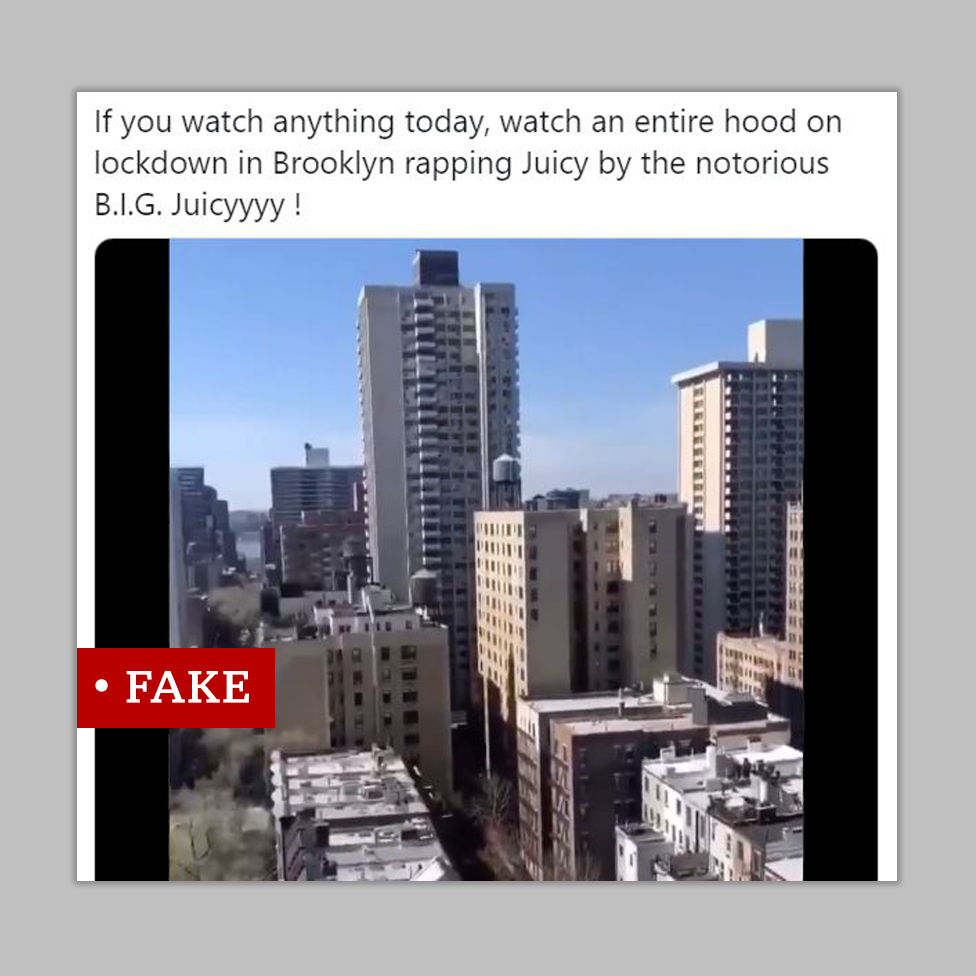
The video, shot from a tall building somewhere in New York, scans across apartment buildings that are apparently blaring out the song Juicy by deceased Brooklyn rapper Biggie.
However, the posts are fake. We know this because we found that, tipped off by a comment on one of the posts, the recording appears to be a match for a video from a Jay-Z concert in 2010.
We also pinpointed the video to Manhattan not Brooklyn - probably the Upper West Side, external.
So the video does not show a mass singalong that, if you read the comments, gave people "goose bumps".
That's not a 5G antenna
A video claiming to show people in China tearing down a 5G mobile antenna was shared on social media and has generated thousands of views.
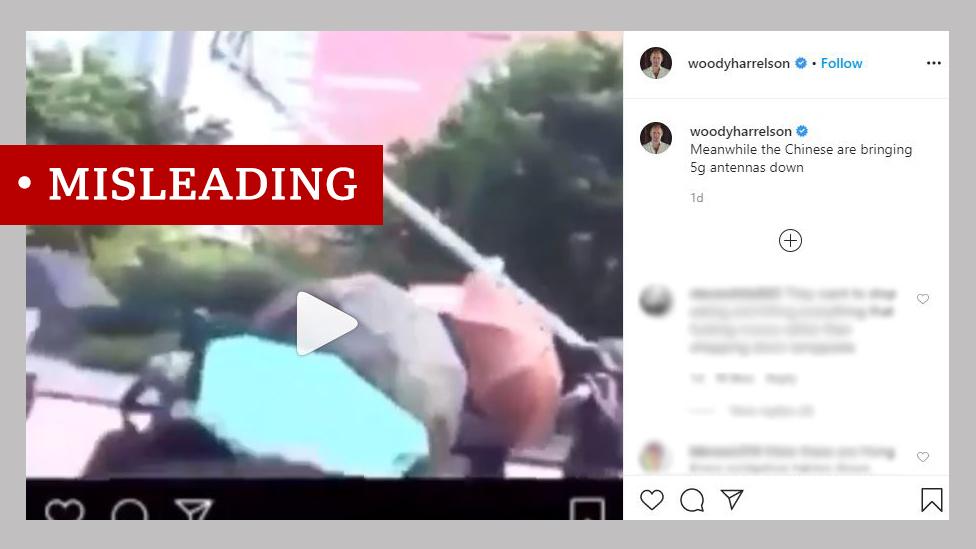
Actor Woody Harrelson, who has two million Instagram followers, posted the video, saying: "Meanwhile the Chinese are bringing 5g antennas down."
The video is genuine but it's old and shows protesters in Hong Kong in August 2019 tearing down what was reported to be a "smart lamppost" equipped to collect data.
5G is the latest high-speed mobile broadband technology which requires new antenna masts to be installed to maintain the network.
The video was shared as false rumours about a link between 5G and coronavirus spread on social media.
Your mate's tip-off about steam? Ignore it
Posts claiming that inhaling steam has helped coronavirus patients' recovery have been spreading across social media this week.
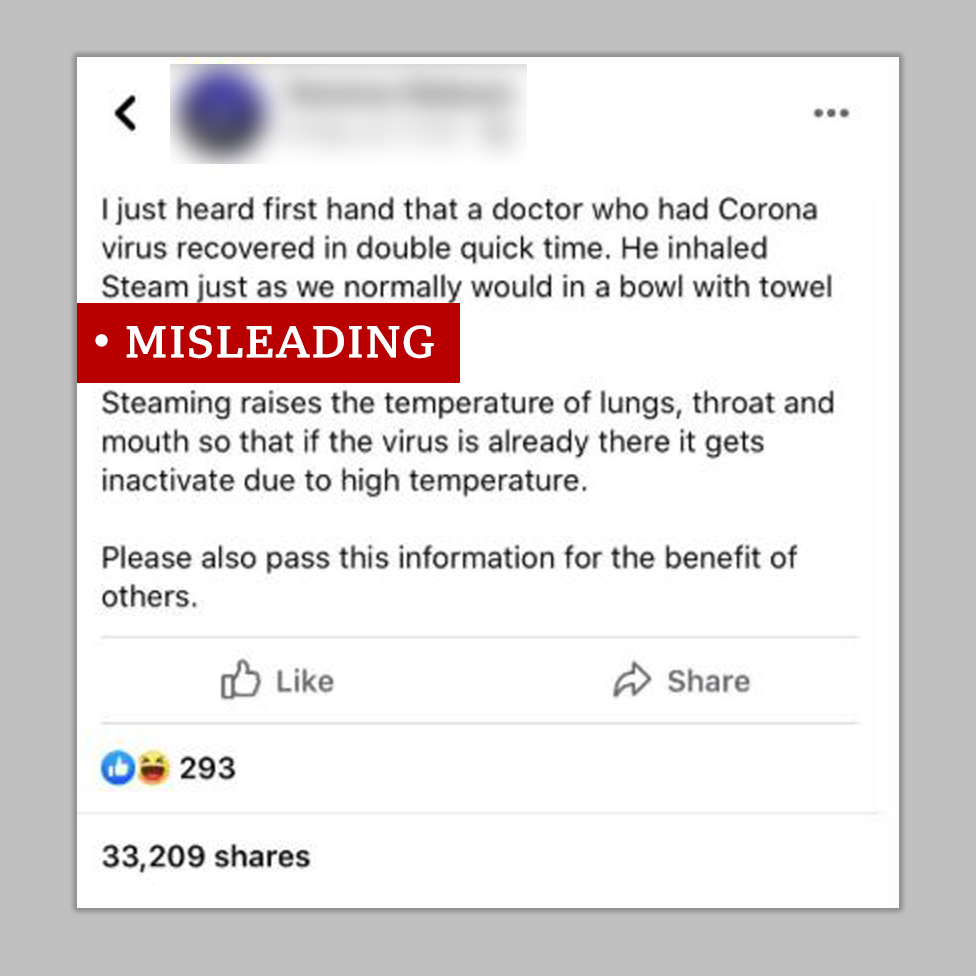
One example has been shared more than 40,000 times. It appears to come from a Facebook user in Durham, who wrote that he heard "first hand that a doctor who had Corona virus recovered in double quick time" after inhaling steam.
A similar message has taken different forms - coming from someone's "sister in London", "Queens NY" and "a sister from Pakistan".
There's no evidence that steam inhalation works as a treatment for coronavirus.
This advice is also potentially harmful.
High-temperature steam-cleaning of surfaces in hospitals and elsewhere does destroy the coronavirus (as well as other types of viruses) says Prof Keith Neal, a specialist in the study of the spread of infectious diseases at the University of Nottingham.
However, any attempt to inhale steam at this temperature, would be extremely dangerous and risk burns.
Your body's cooling system would kick in to limit the rise in temperature, says Prof Neal, and your lungs would certainly be irreparably damaged before reaching a temperature high enough to deactivate the virus.
Croatian earthquake survivors not Italian patients
Posts with images of hospital beds and patients being treated on the streets are going viral on social media with the claim that hospitals in Italy have run out of space due to the spread of coronavirus.
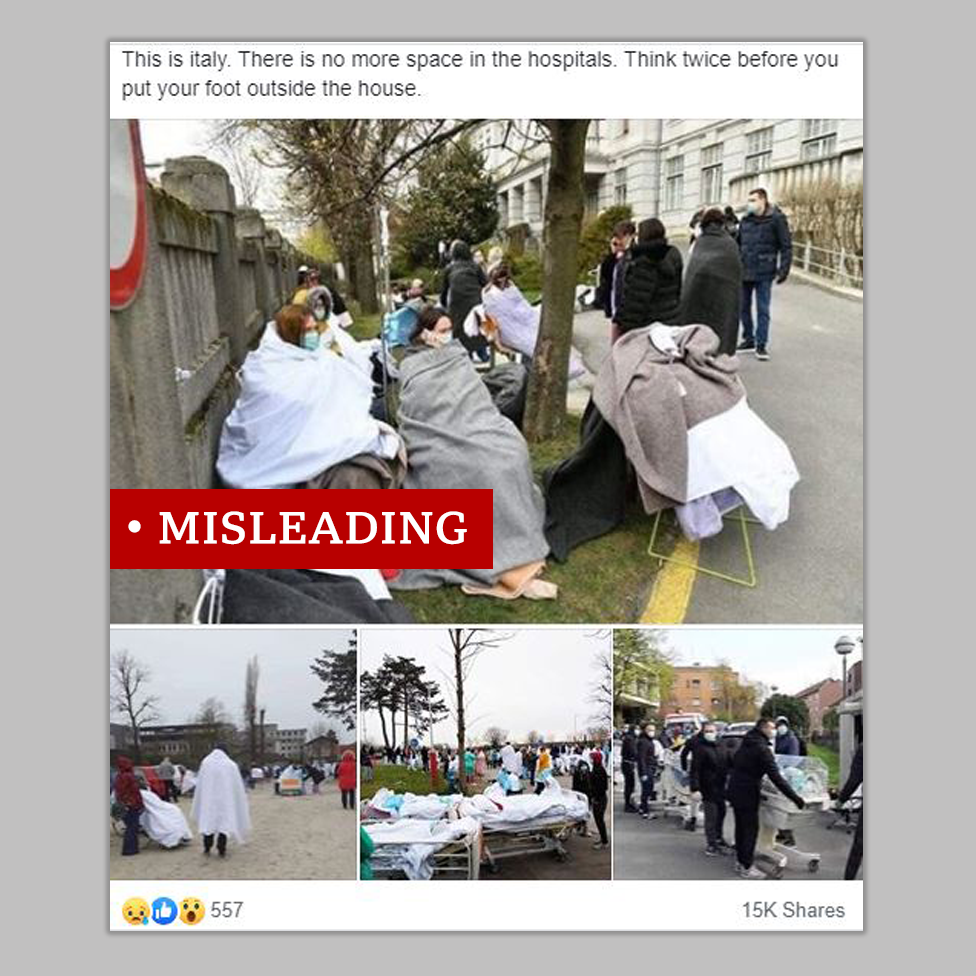
The images being shared are genuine, but they are not from Italy.
A reverse image search reveals they were taken in the Croatian capital, Zagreb, after it was hit by an earthquake on 22 March.
The most widely shared post seems to have originated in India just as the government there imposed a nationwide lockdown on 25 March.
It has been shared more than 17,000 times and is now being posted by users outside India.
Indian journalist Rajat Sharma, also tweeted the images with the misleading claim. He deleted the post within a few hours but it had already been retweeted more than 6,000 times.
Baking-soda remedies in Russia
A Russian scientist has said that a man-made bacterium has somehow merged with the new coronavirus and is the reason people are dying - and recommends baking soda to treat it.

The scientist is described as "one of the most influential in the world".
The interview appeared on a popular Russian YouTube channel and has had more than four million views.
But there's no evidence to support this - the disease Covid-19 is caused by the coronavirus alone.
It's also not the case that baking soda can help if you are infected with coronavirus, or prevent infection from it.

EASY STEPS: How to keep safe
A SIMPLE GUIDE: What are the symptoms?
CONTAINMENT: What it means to self-isolate
HEALTH MYTHS: The fake advice you should ignore
MAPS AND CHARTS: Visual guide to the outbreak

Irene Ken did not approve this message
Some misleading online posts are difficult to spot because they contain both good and bad medical advice.
You can be drawn in by the good from what appears to be a reputable source and then can be caught off guard when bad advice is thrown into the mix.
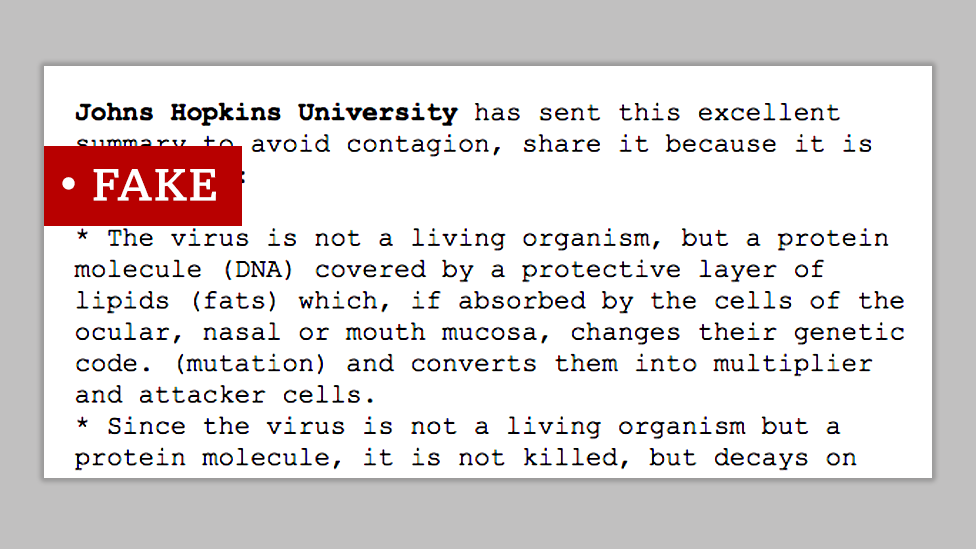
A good example of this is a message attributed to Johns Hopkins University in the US.
It has been widely shared in various forms, sometimes attributed to a medical expert, Irene Ken, suggesting ways to avoid the "contagion".
There is some sensible advice in there, such as washing your hands or that vodka is not a strong enough alcohol to kill the virus.
Other parts of it, however, are inaccurate - among them that Listerine, a brand of mouthwash, is 65% alcohol (it's much less than that).
Allow X content?
This article contains content provided by X. We ask for your permission before anything is loaded, as they may be using cookies and other technologies. You may want to read X’s cookie policy, external and privacy policy, external before accepting. To view this content choose ‘accept and continue’.

The Johns Hopkins University says it had nothing to do with any of these posts.
Additional reporting by Marianna Spring, Shruti Menon, Olga Robinson, Shayan Sardarizadeh and Alistair Coleman.


